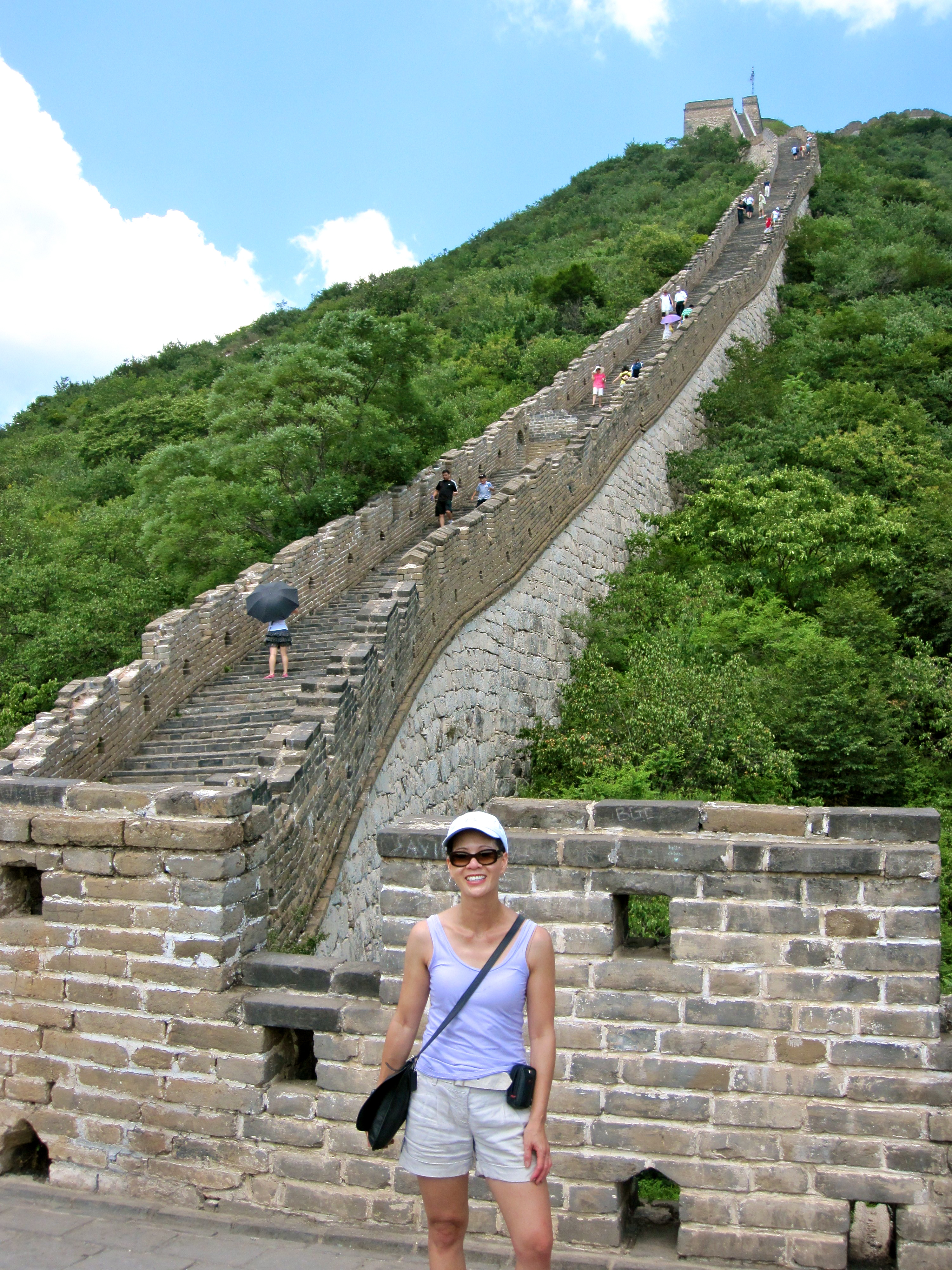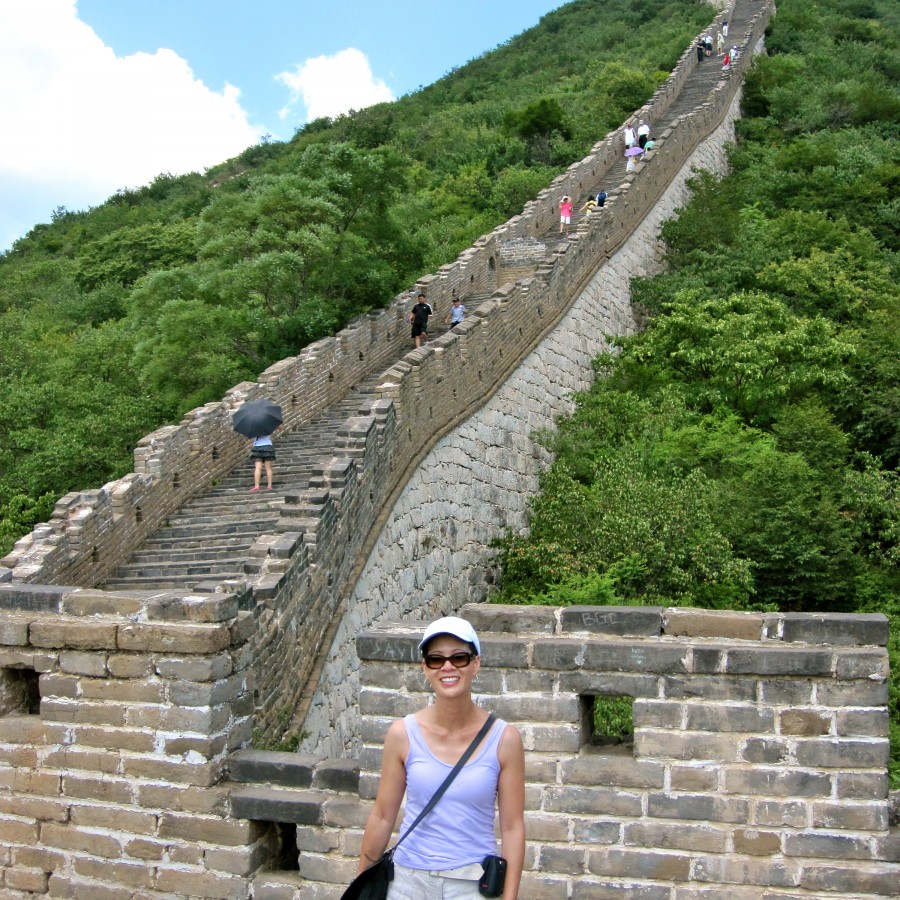We may be certain of a place we want to go, but even when our destination is clearly within sight, it requires conscious diligence to reach our desired endpoint.
I used to tell with a healthy dose of self-deprecation the story of how I got lost on the Great Wall of China, but I recognized only recently that this story has been a glaring metaphor for my life.
During a visit to this wonder of the world a few years ago, I’d intentionally parted from my family with a singular goal of reaching a distant tower perched invitingly at the highest point in our view. I’d asked our guide how long it would take to reach said tower, and when he’d answered that he could do it in the two hours allotted to explore but likely the rest of us couldn’t, he all but threw the gauntlet down at my very feet.
Under a blazing sun and temperatures around the century mark, I reached the base of the tower in just over an hour (where I’m standing pictured). I started up the never-ending stairs to my destination and halfway there declared victory in the essence of time. Climbing to the top wouldn’t have left enough time for my return trek for our appointed departure with a full day ahead of scheduled tours throughout Beijing.
After walking what felt like the entire wall, it finally dawned on me that I was lost. I hadn’t come across the place where we’d entered nor did I see it in the distance in either direction. By this time, I was late and envisioned my family getting angry from the assumption of what would appear as my disregard for our schedule. The thought that I was lost probably wouldn’t even cross their minds. After all, how could anyone get lost on the Great Wall of China?
I eventually found my way back some ninety minutes later and had all but written off the experience as a classic Lois story until a recent visit to Walden Pond in Concord, Massachusetts.
I visited the famed site of Henry David Thoreau’s two-year, two-month, two-day experiment living in nature as part of a pilgrimage there with my mentor, Mary Morrissey. Desiring solitude in homage to my transcendental hero, I broke from our group and walked briskly on the main path circling the pond, passing numerous fellow students who ambled along at a more leisurely pace.
When I reached our meeting point and caught up with a friend, I realized that my hurried pace had been fueled by a fear of becoming separated from our group and getting lost. I spoke of the irony of losing myself on a circular path and the similarity to my trek on the Great Wall. In the course of our conversation, I discovered that these experiences reflected a broader fear of losing my way in my life.
Most of my life, I’d strayed from my path as a writer. While I’d found my way back, only recently I’d again teetered on the precipice of going astray. I hadn’t known up until that moment that the undercurrent of fear still pervaded my subconscious thinking, but recognizing my fear presented the opportunity to turn her into a friendly companion for my journey.
It’s human nature to fear the unknown, especially if the path isn’t clearly visible all the way to our ultimate destination.
But if we’re certain of where we want to go – certain of the authentic story we’re claiming – the presence of fear can be an invigorating reminder that we’re staying the right course.
Sure, there will be moments when we’re scared because we’re doing something we’ve never done before, but don’t automatically retreat. Instead, be curious of why fear has shown up and take her message to heart. She’s likely there to affirm you’re on the right path.




